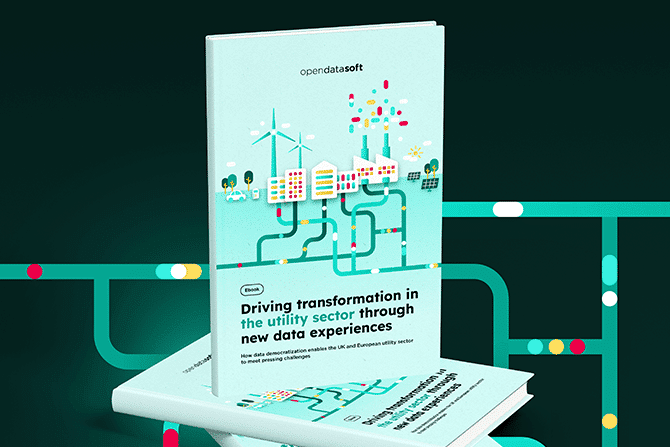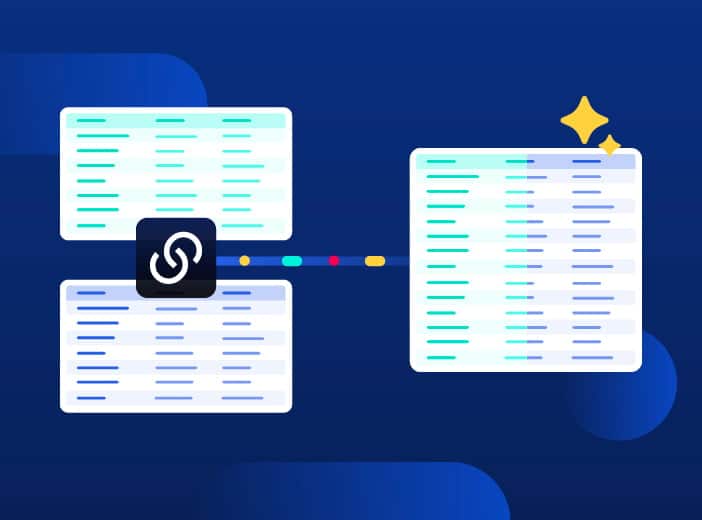Ebook: Building a data-driven future for the UK utility sector
To meet its current challenges around sustainability, efficiency, transparency and innovation the UK utility sector needs to become more data-driven. Introducing our new utility ebook, this blog outlines the obstacles to data democratization and how the industry can overcome them, based on best practice and data sharing use cases from across Europe.

The UK utility sector faces major challenges. As an industry it is central to efforts to move to Net Zero, both in its operations and the energy it provides, all while needing to ensure affordability for customers as it meets their changing requirements.
Essentially utilities now have to deliver on a radically different regulatory, consumer, societal and business environment. This will require transformation and digitization. The shift must be powered by data, and particularly by data democratization – making data accessible and easy to use by all, inside and outside the organization, irrespective of their technical skills.
How can UK utilities successfully move to become data-driven? To help on the journey, we have created an in-depth ebook, based on best practice from other industries and from utilities across Europe.
The guide highlights the importance of data and data democratization to meet current and future challenges in the entire utility sector. To help companies drive change it provides best practice advice and lessons to be learned, as well as ideas to drive innovation.
Discover our new ebook and learn all about:
- the challenges that hold back data sharing within the UK utility sector
- how to create an effective data program
- the regulatory imperative and how it drives a need for greater data sharing
- examples of use cases from Opendatasoft customers including UK Power Networks, Birdz Veolia, Energias de Portugal, Schneider Electric, Elia, GRDF, and Enedis.
- best practice advice on where to start with data democratization
The challenges to data democratization within the utility sector
Becoming data-driven and sharing information inside and outside the organization helps utilities to become more efficient, transparent, innovative, customer-focused and sustainable. They can better inform their ecosystems, plan more effectively, and make better decisions.
However, the process of data sharing is not easy, with utilities facing a range of obstacles that need to be overcome to enable success. Essentially, these issues fall into three groups:
- Creating a data culture
- Putting in place strong data governance
- Choosing the right technology to enable data democratization
How can you address these challenges and implement a strategy to better use data across your utility? Download our ebook to find out.
Five areas to kickstart your data democratization program
Sharing data more widely may appear difficult for utilities to achieve, but it is a business and regulatory imperative. It requires a concerted long-term and strategic program that unlocks the benefits of data democratization for all stakeholders, inside and outside the organization.
Begin with creating an overall strategy, focused on these five areas:
1. Lead your program from the top, with senior management onboard
2. Involve your users at all levels by listening to their data needs
3. Implement a strong governance process to ensure quality and usability
4. Build a data culture across the organization, demonstrating the benefits to individuals
5. Fill in gaps in your technology stack with the right solutions
Benefits and use cases
Data has the power to transform how utilities operate enabling them to become:
- More efficient by automating processes and removing paper-based operations. Effectiveness increases through a deeper understanding of performance, greater insights and the ability to take better informed, faster decisions.
- More sustainable as up-to-date, comprehensive data enables monitoring of improvements towards Net Zero as well as providing an accurate picture of operational risk.
- More customer-centric through better understanding of consumer behavior, enabling new, personalized services to be introduced.
- More transparent by sharing data externally with customers and consumers and explaining progress towards key targets through clear dashboards, reports and visualizations.
- More innovative by enabling wider collaboration through the sharing of data and associated best practices.
Read our ebook to access relevant case studies from leading utilities, including UK Power Networks, Birdz Veolia, Energias de Portugal, Schneider Electric, Elia, GRDF, and Enedis.
Unleash the power of data democratization within your organization by downloading our ebook today.




